The small office in Hattiesburg, Mississippi could be the site of any local small business. A whiteboard hangs on the wall, covered with a paper calendar and copious notes written in every color of erasable marker. But this unassuming space is actually the home of the remarkable nonprofit organization, Extra Table, where Executive Director Martha Allen combats food insecurity in Mississippi with astonishing impact.
During 2020, Martha—the organization’s sole employee for half of the year—orchestrated the delivery of over 1.2 million pounds of purchased and surplus food to community organizations across the state. With infectious passion and an earnest dedication to her state community, she has established a network of food distributors, producers, community pantries, and volunteers that brings a “strictly grassroots” approach to hunger relief.
.jpg)
Community service has been an integral part of Martha’s life since her childhood in the Mississippi Delta. “My parents were very involved in giving back, whether it be in the community, at church, or in my mom's little country school. And so I was always raised to think about others and to put others before myself,” she remembered. As a teenager, Martha was a frequent volunteer at her local soup kitchen, often taking the children she babysat with her: “I remember going as a babysitter and carrying…the kids with me and putting the little girl at the door to greet people as they came in and made the boy help chop in the kitchen and had the baby on my hip.”
Martha’s involvement in Extra Table seems a natural outgrowth of this lifelong commitment to service and her relentless work ethic. Two years after meeting the nonprofit’s founder, Robert St. John, at a fundraiser, she joined the organization. Since then, she has vastly expanded Extra Table’s reach, working long hours alternately as the leader of a two-person team or as the sole employee. “It's been definitely a whirlwind,” she reflected. “Extra Table’s an incredible organization, and Robert’s a brilliant creative. When he created Extra Table, our program of work…it was a stroke of sheer brilliance.”
.jpg)
Martha describes Extra Table’s model as “neighbors feeding neighbors.” The organization is committed to buying “new, healthy, shelf-stable food” which they deliver to more than 50 soup kitchens and food pantries across Mississippi for free. This locally-oriented strategy is designed to engage the community in the fight against food insecurity. “We fight hunger differently,” she said. “We have a very unique program of work and it seems to really work for us in order to feed as many Mississippians as we're able to support and access.” The organization’s emphasis on providing nutritious food is another point of focus: “the food that we're able to provide is the same food that is on my pantry shelves at home...It's good food. It's food that offers hope and respect.”
Before COVID-19, Mississippi had some of the highest per-capita food insecurity rates in the country. When the pandemic hit, the food pantries that Extra Table supports saw a 30-50 percent increase in demand while Sysco, one of the organization’s main suppliers, cut back its involvement. Facing this daunting situation, Martha and the Extra Table network have risen to the challenge in incredible fashion. Working with CHOW Purchasing, Extra Table’s newest partner in the food fight, the organization has expanded its capacity 400% from 2019 to 2020.

In June of this past year, with Extra Table in the midst of this rapid growth, Martha learned about The Farmlink Project when it was featured on the Today Show. She reached out to The Farmlink Project team, and since then, Extra Table has received and distributed eight 40,000-pound shipments of sweet potatoes through The Farmlink Project, with several more deliveries planned. Of the partnership she said, “We'd emailed some potato farmers and not heard back and didn't have the manpower and the time to sit and call each farm until they gave us a call back and listened to our story…You all take that part of the process and make it your own, make it happen and then pass it back off to us. And so we…coordinate the distribution, and distributing food directly to the pantries is our wheelhouse.”
Extra Table recently created the Hub for the Hungry, a food rescue and distribution program in Jackson, Mississippi. Armed with this growing network, a new warehouse, and two eighteen-wheelers, Martha wants Extra Table to deliver several hundred-thousand pounds of food each month. She also hopes to expand partnerships with like-minded organizations like The Farmlink Project. On the organization’s goals, she stated, “There's people that are counting on us…It’s our mission to feed hungry Mississippians. And so until we hit all 82 [Mississippi] counties, we can't tire.”
.jpg)
< Back
The small office in Hattiesburg, Mississippi could be the site of any local small business. A whiteboard hangs on the wall, covered with a paper calendar and copious notes written in every color of erasable marker. But this unassuming space is actually the home of the remarkable nonprofit organization, Extra Table, where Executive Director Martha Allen combats food insecurity in Mississippi with astonishing impact.
During 2020, Martha—the organization’s sole employee for half of the year—orchestrated the delivery of over 1.2 million pounds of purchased and surplus food to community organizations across the state. With infectious passion and an earnest dedication to her state community, she has established a network of food distributors, producers, community pantries, and volunteers that brings a “strictly grassroots” approach to hunger relief.
.jpg)
Community service has been an integral part of Martha’s life since her childhood in the Mississippi Delta. “My parents were very involved in giving back, whether it be in the community, at church, or in my mom's little country school. And so I was always raised to think about others and to put others before myself,” she remembered. As a teenager, Martha was a frequent volunteer at her local soup kitchen, often taking the children she babysat with her: “I remember going as a babysitter and carrying…the kids with me and putting the little girl at the door to greet people as they came in and made the boy help chop in the kitchen and had the baby on my hip.”
Martha’s involvement in Extra Table seems a natural outgrowth of this lifelong commitment to service and her relentless work ethic. Two years after meeting the nonprofit’s founder, Robert St. John, at a fundraiser, she joined the organization. Since then, she has vastly expanded Extra Table’s reach, working long hours alternately as the leader of a two-person team or as the sole employee. “It's been definitely a whirlwind,” she reflected. “Extra Table’s an incredible organization, and Robert’s a brilliant creative. When he created Extra Table, our program of work…it was a stroke of sheer brilliance.”
.jpg)
Martha describes Extra Table’s model as “neighbors feeding neighbors.” The organization is committed to buying “new, healthy, shelf-stable food” which they deliver to more than 50 soup kitchens and food pantries across Mississippi for free. This locally-oriented strategy is designed to engage the community in the fight against food insecurity. “We fight hunger differently,” she said. “We have a very unique program of work and it seems to really work for us in order to feed as many Mississippians as we're able to support and access.” The organization’s emphasis on providing nutritious food is another point of focus: “the food that we're able to provide is the same food that is on my pantry shelves at home...It's good food. It's food that offers hope and respect.”
Before COVID-19, Mississippi had some of the highest per-capita food insecurity rates in the country. When the pandemic hit, the food pantries that Extra Table supports saw a 30-50 percent increase in demand while Sysco, one of the organization’s main suppliers, cut back its involvement. Facing this daunting situation, Martha and the Extra Table network have risen to the challenge in incredible fashion. Working with CHOW Purchasing, Extra Table’s newest partner in the food fight, the organization has expanded its capacity 400% from 2019 to 2020.

In June of this past year, with Extra Table in the midst of this rapid growth, Martha learned about The Farmlink Project when it was featured on the Today Show. She reached out to The Farmlink Project team, and since then, Extra Table has received and distributed eight 40,000-pound shipments of sweet potatoes through The Farmlink Project, with several more deliveries planned. Of the partnership she said, “We'd emailed some potato farmers and not heard back and didn't have the manpower and the time to sit and call each farm until they gave us a call back and listened to our story…You all take that part of the process and make it your own, make it happen and then pass it back off to us. And so we…coordinate the distribution, and distributing food directly to the pantries is our wheelhouse.”
Extra Table recently created the Hub for the Hungry, a food rescue and distribution program in Jackson, Mississippi. Armed with this growing network, a new warehouse, and two eighteen-wheelers, Martha wants Extra Table to deliver several hundred-thousand pounds of food each month. She also hopes to expand partnerships with like-minded organizations like The Farmlink Project. On the organization’s goals, she stated, “There's people that are counting on us…It’s our mission to feed hungry Mississippians. And so until we hit all 82 [Mississippi] counties, we can't tire.”
.jpg)
Martha Allen
Executive Director of Extra Table
The small office in Hattiesburg, Mississippi could be the site of any local small business. A whiteboard hangs on the wall, covered with a paper calendar and copious notes written in every color of erasable marker. But this unassuming space is actually the home of the remarkable nonprofit organization, Extra Table, where Executive Director Martha Allen combats food insecurity in Mississippi with astonishing impact.
During 2020, Martha—the organization’s sole employee for half of the year—orchestrated the delivery of over 1.2 million pounds of purchased and surplus food to community organizations across the state. With infectious passion and an earnest dedication to her state community, she has established a network of food distributors, producers, community pantries, and volunteers that brings a “strictly grassroots” approach to hunger relief.
.jpg)
Community service has been an integral part of Martha’s life since her childhood in the Mississippi Delta. “My parents were very involved in giving back, whether it be in the community, at church, or in my mom's little country school. And so I was always raised to think about others and to put others before myself,” she remembered. As a teenager, Martha was a frequent volunteer at her local soup kitchen, often taking the children she babysat with her: “I remember going as a babysitter and carrying…the kids with me and putting the little girl at the door to greet people as they came in and made the boy help chop in the kitchen and had the baby on my hip.”
Martha’s involvement in Extra Table seems a natural outgrowth of this lifelong commitment to service and her relentless work ethic. Two years after meeting the nonprofit’s founder, Robert St. John, at a fundraiser, she joined the organization. Since then, she has vastly expanded Extra Table’s reach, working long hours alternately as the leader of a two-person team or as the sole employee. “It's been definitely a whirlwind,” she reflected. “Extra Table’s an incredible organization, and Robert’s a brilliant creative. When he created Extra Table, our program of work…it was a stroke of sheer brilliance.”
.jpg)
Martha describes Extra Table’s model as “neighbors feeding neighbors.” The organization is committed to buying “new, healthy, shelf-stable food” which they deliver to more than 50 soup kitchens and food pantries across Mississippi for free. This locally-oriented strategy is designed to engage the community in the fight against food insecurity. “We fight hunger differently,” she said. “We have a very unique program of work and it seems to really work for us in order to feed as many Mississippians as we're able to support and access.” The organization’s emphasis on providing nutritious food is another point of focus: “the food that we're able to provide is the same food that is on my pantry shelves at home...It's good food. It's food that offers hope and respect.”
Before COVID-19, Mississippi had some of the highest per-capita food insecurity rates in the country. When the pandemic hit, the food pantries that Extra Table supports saw a 30-50 percent increase in demand while Sysco, one of the organization’s main suppliers, cut back its involvement. Facing this daunting situation, Martha and the Extra Table network have risen to the challenge in incredible fashion. Working with CHOW Purchasing, Extra Table’s newest partner in the food fight, the organization has expanded its capacity 400% from 2019 to 2020.

In June of this past year, with Extra Table in the midst of this rapid growth, Martha learned about The Farmlink Project when it was featured on the Today Show. She reached out to The Farmlink Project team, and since then, Extra Table has received and distributed eight 40,000-pound shipments of sweet potatoes through The Farmlink Project, with several more deliveries planned. Of the partnership she said, “We'd emailed some potato farmers and not heard back and didn't have the manpower and the time to sit and call each farm until they gave us a call back and listened to our story…You all take that part of the process and make it your own, make it happen and then pass it back off to us. And so we…coordinate the distribution, and distributing food directly to the pantries is our wheelhouse.”
Extra Table recently created the Hub for the Hungry, a food rescue and distribution program in Jackson, Mississippi. Armed with this growing network, a new warehouse, and two eighteen-wheelers, Martha wants Extra Table to deliver several hundred-thousand pounds of food each month. She also hopes to expand partnerships with like-minded organizations like The Farmlink Project. On the organization’s goals, she stated, “There's people that are counting on us…It’s our mission to feed hungry Mississippians. And so until we hit all 82 [Mississippi] counties, we can't tire.”
.jpg)
.png)
.jpg)
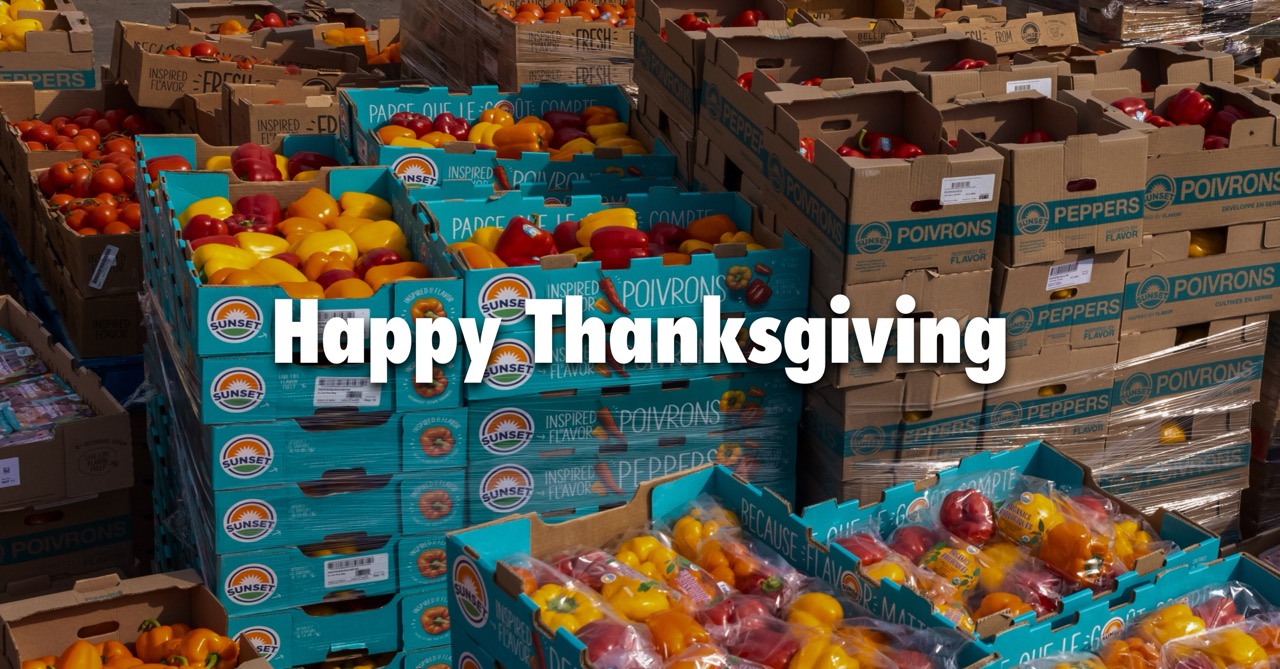
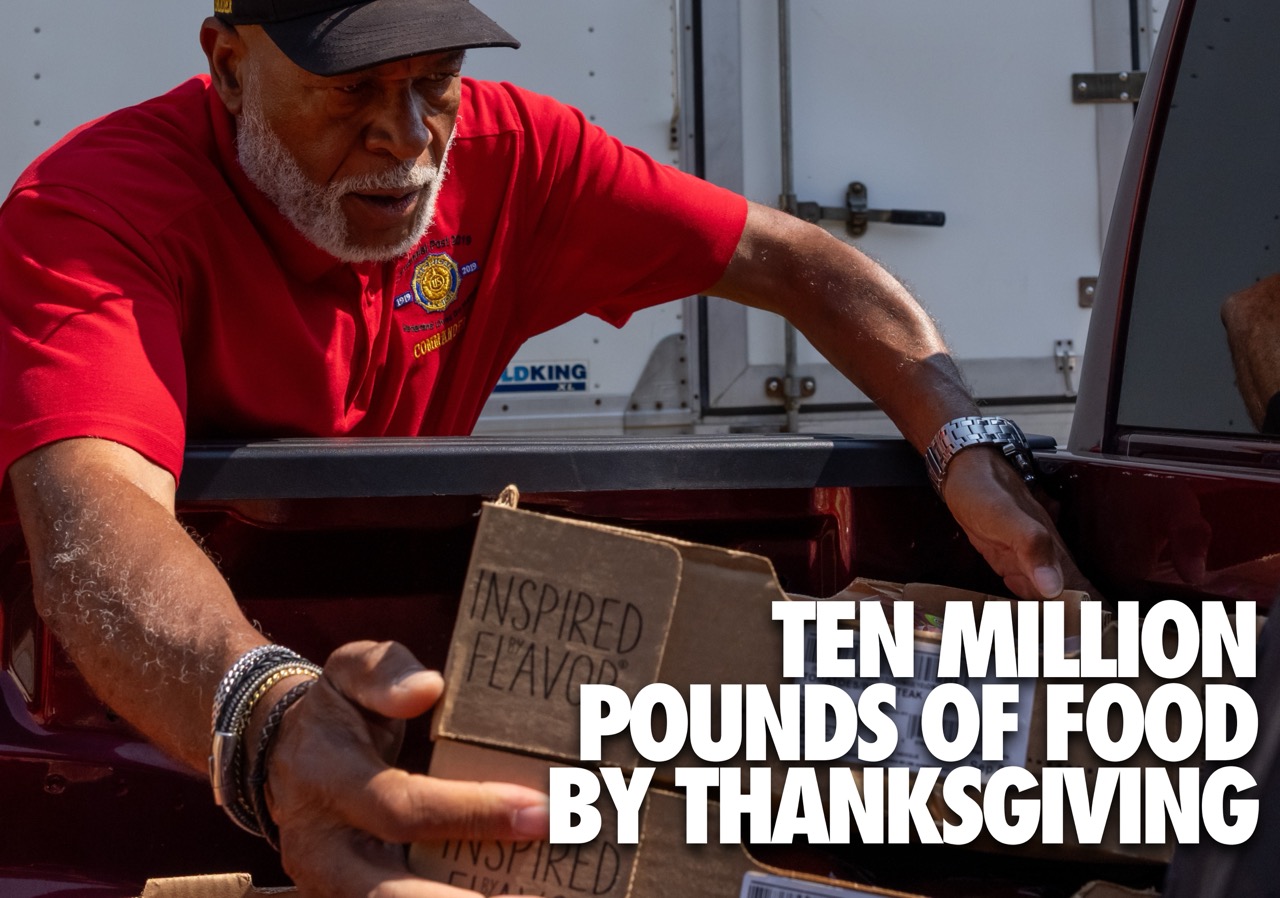
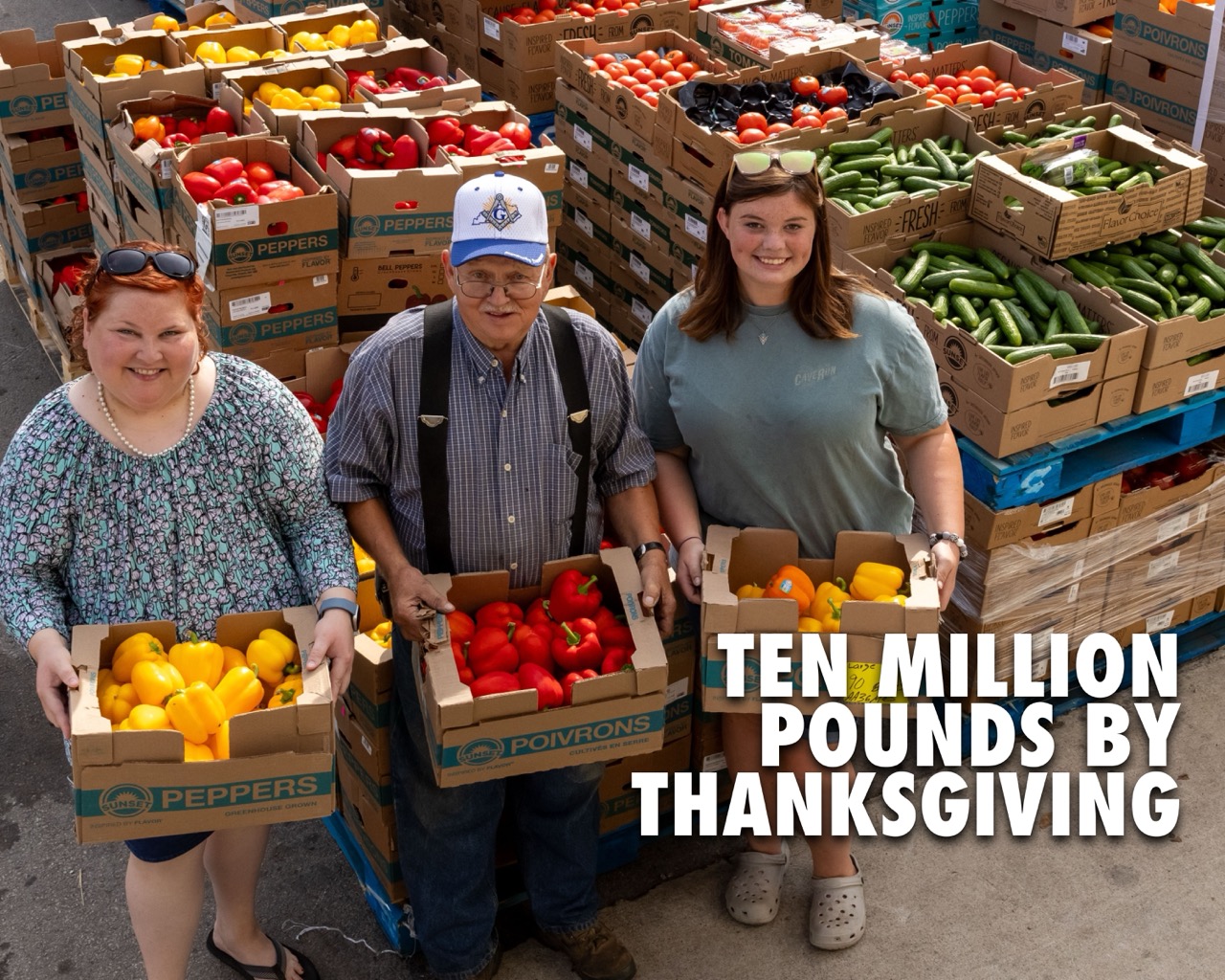
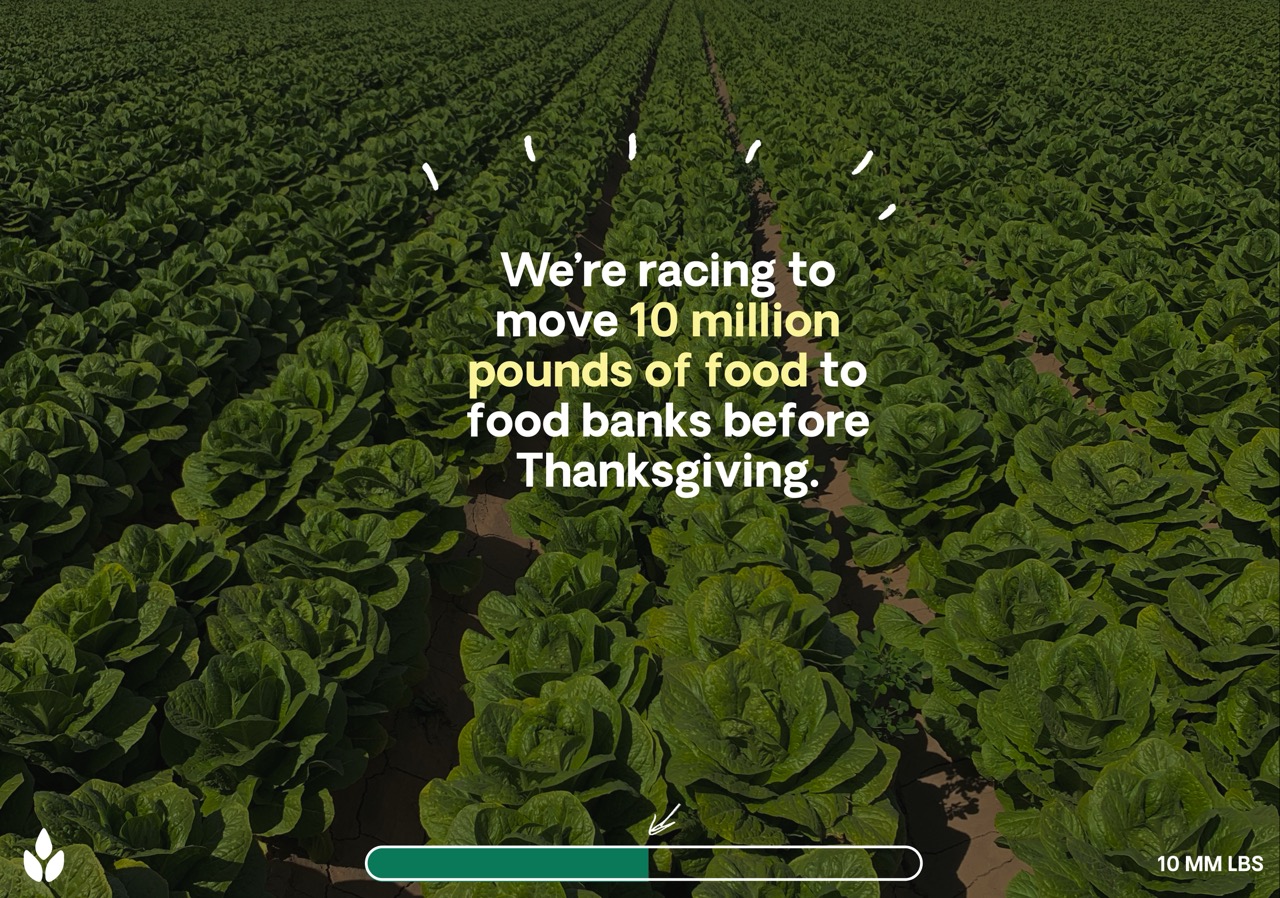
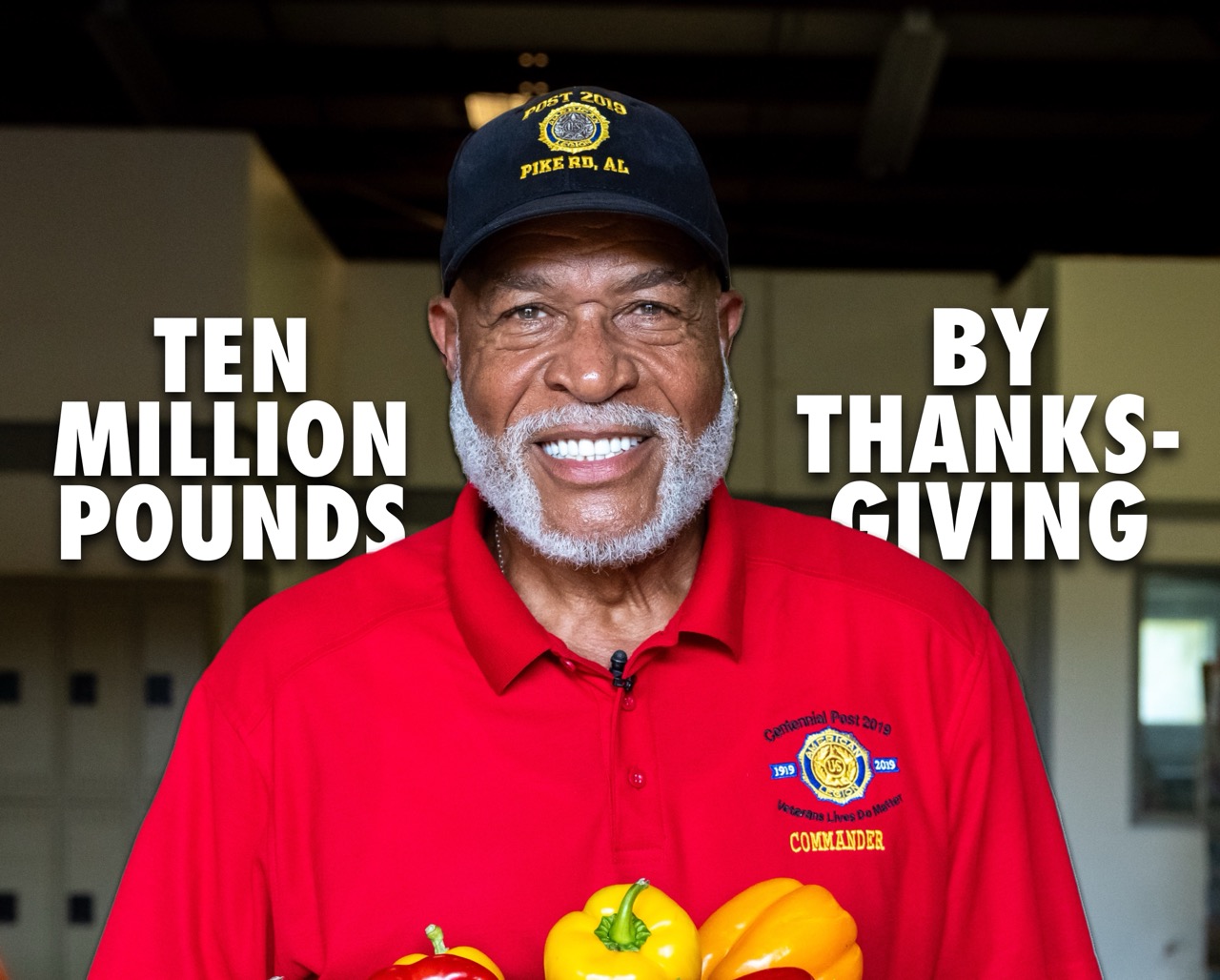
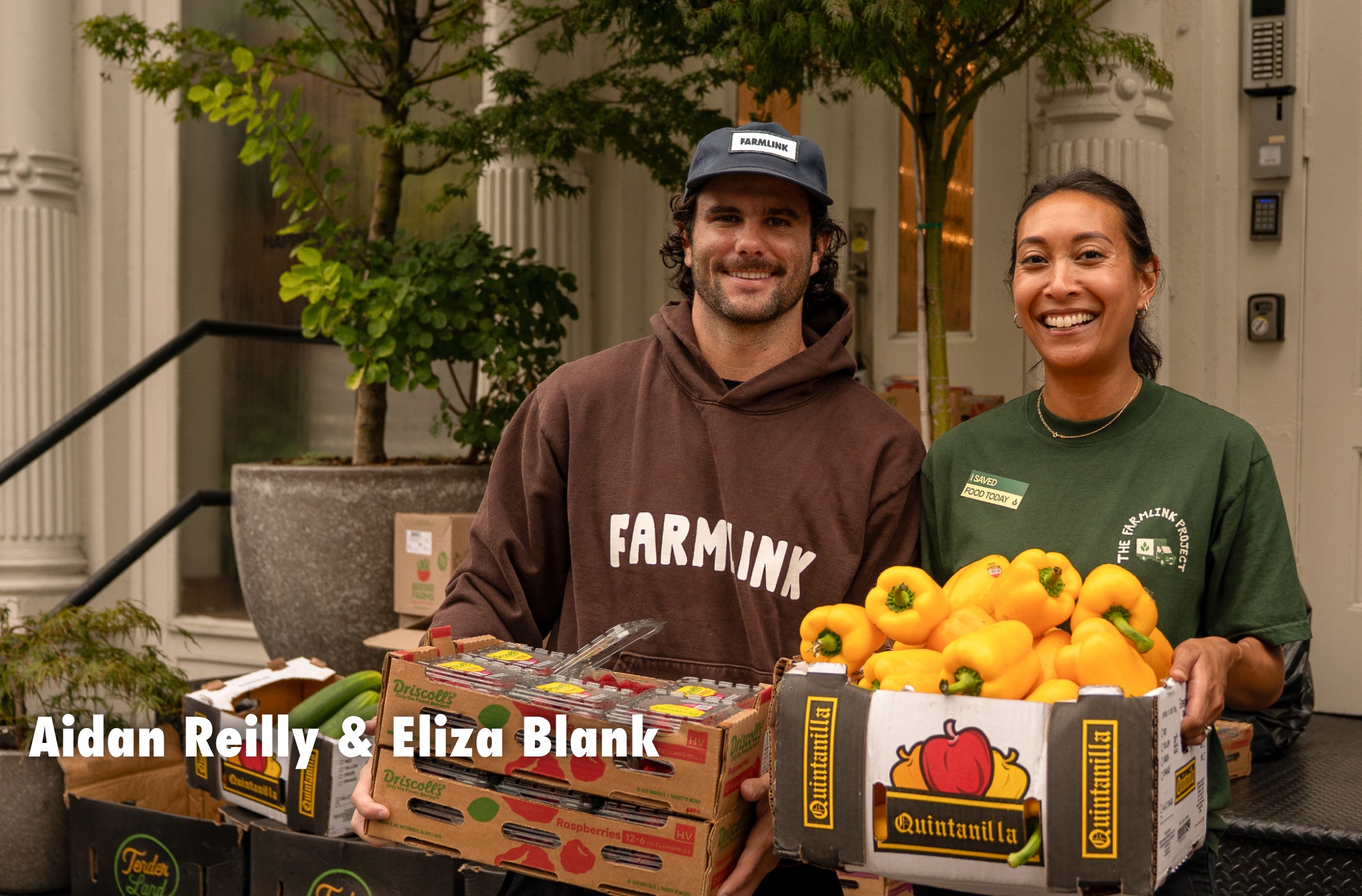
.svg)
.svg)
.svg)